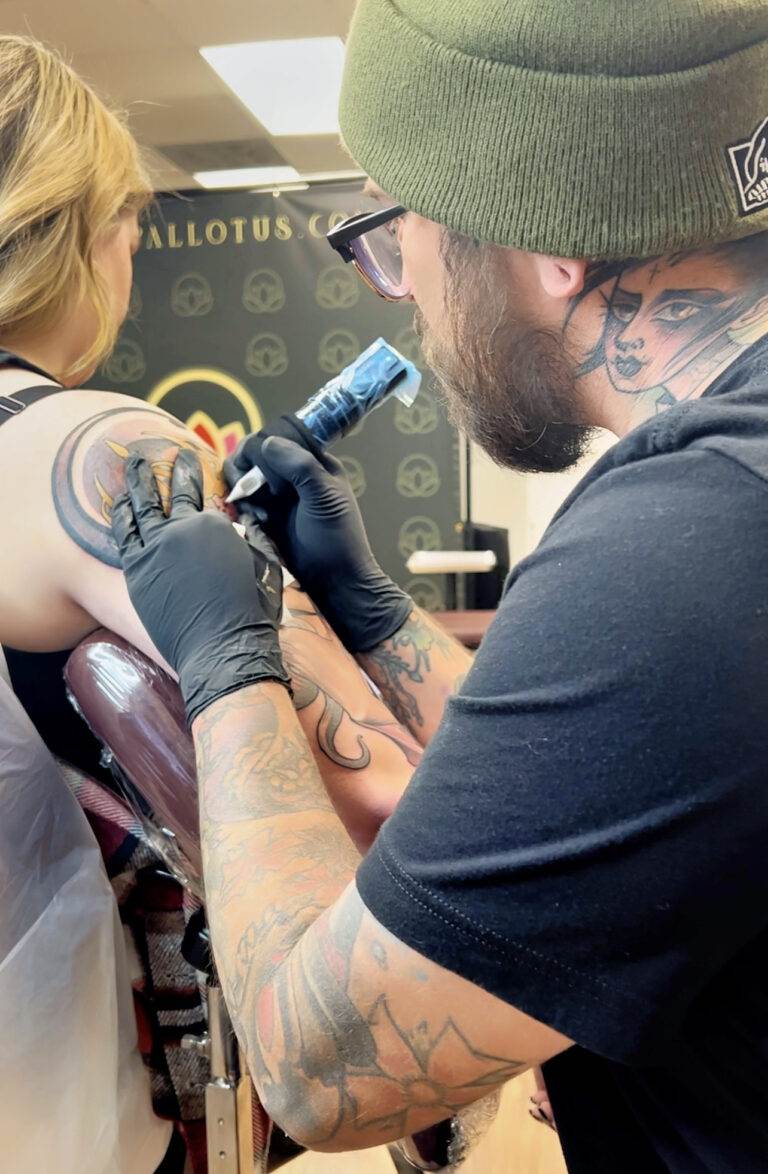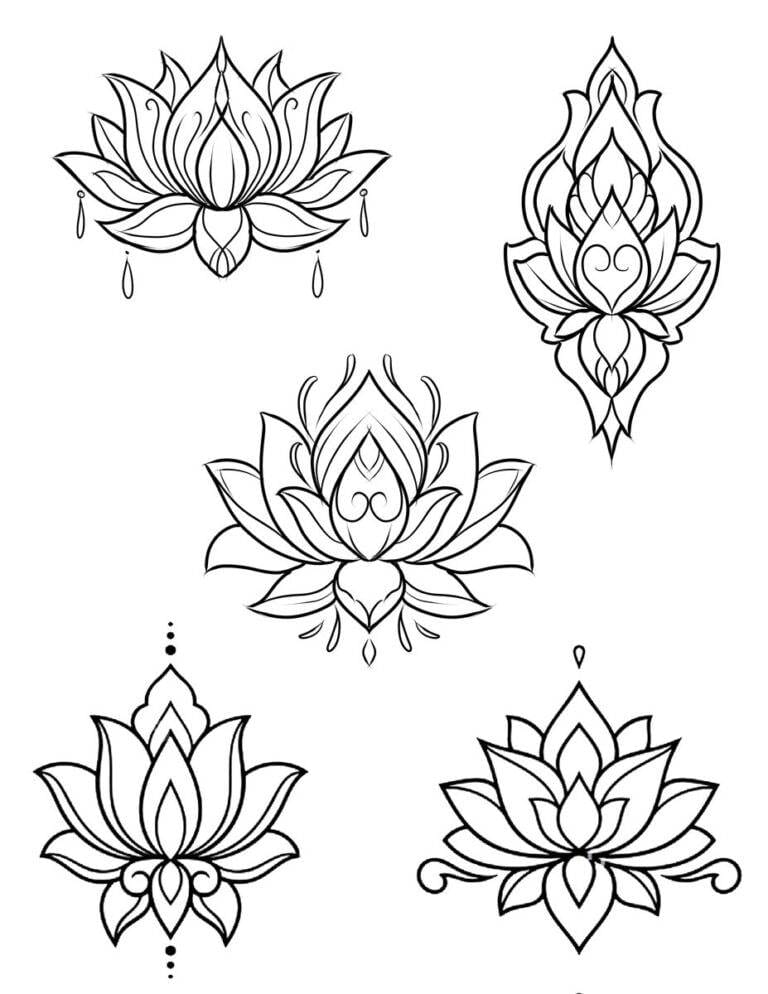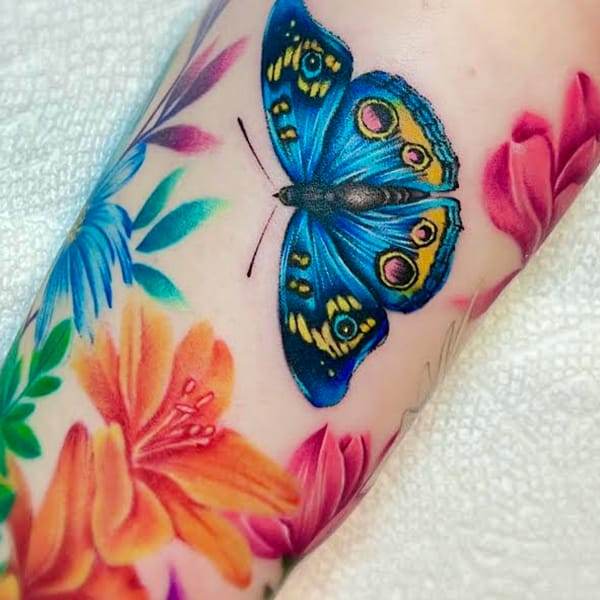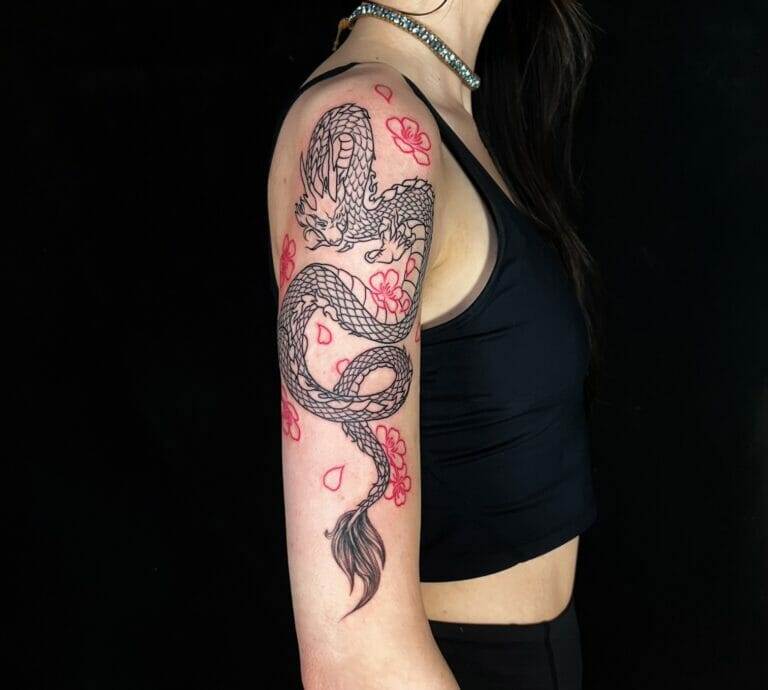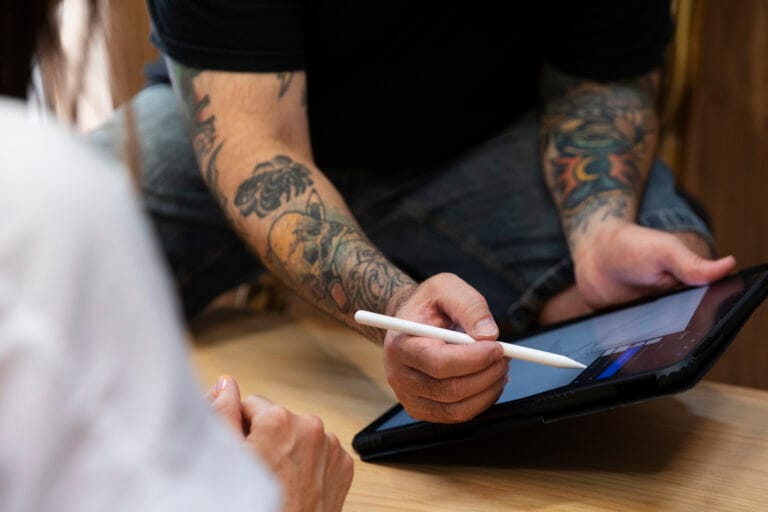Introduction
Overview of Custom Tattoos
Custom tattoos have evolved from mere body art into powerful expressions of personal identity and storytelling. Unlike traditional tattoos, which often consist of standardized designs, custom tattoos allow individuals to collaborate with tattoo artists to create unique pieces that are deeply meaningful. This personalization ensures that every inked design carries a story, representing an individual’s personality, beliefs, or significant life events. People are increasingly seeking custom tattoos for various reasons, including:
- Expression of Creativity: Custom tattoos transform personal ideas into stunning visual representations.
- Unique Identity: Each design is tailored to the individual, making it one-of-a-kind.
- Sentimental Value: Many people choose designs that celebrate important milestones or memories, turning their tattoo into a living diary of sorts.
History of Tattoo Art
The history of tattoo art spans across centuries and cultures, showcasing the rich tapestry of human expression. Ancient civilizations embraced tattoos for numerous reasons, rooted in spirituality, warrior status, or rites of passage. For example, the indigenous tribes of the Pacific Islands used intricate tattoo designs to signify status and belonging within their communities. During the late 19th and early 20th centuries, tattoos gained popularity in Western cultures, often in connection with naval traditions and circus acts. However, as the years progressed, tattoos transformed into a legitimate art form, paving the way for today’s vibrant tattoo industry. The advent of custom tattoos has led to an innovative resurgence, allowing more people to connect with this ancient art in a contemporary context. This rich historical backdrop forms a unique foundation for understanding the significance of custom tattoos today, blending tradition with modern personal expression.



Understanding Custom Tattoos
Benefits of Getting a Custom Tattoo
One of the most significant advantages of getting a custom tattoo is the level of personalization it offers. Unlike ready-made designs, custom tattoos reflect the unique story and personality of the individual. Here are some key benefits to consider:
- Personal Connection: Many people choose custom designs that commemorate a life event, such as the birth of a child or a significant achievement, making the tattoo meaningful and personal.
- Creative Freedom: Collaborating with a tattoo artist allows individuals to bring their imaginative ideas to life, resulting in a unique piece of art.
- Quality Craftsmanship: Custom tattoos often come with a higher standard of craftsmanship since they are tailored specifically to the individual, ensuring attention to detail.
- Emotional Expression: These tattoos serve as a canvas for self-expression, allowing individuals to convey emotions, beliefs, or tributes that define who they are.
Difference Between Custom Tattoos and Traditional Tattoos
While traditional tattoos commonly consist of standardized or popular designs, custom tattoos stand apart in their quest for personalization.
- Design Source: Traditional tattoos often rely on pre-determined designs, while custom tattoos originate from personal ideas or experiences, tailored for each client.
- Artistic Collaboration: Custom tattoos involve a collaborative process between the tattooist and the individual, allowing for ongoing feedback and creativity, whereas traditional tattoos are typically chosen from a flash sheet.
- Uniqueness: Every custom tattoo is inherently unique due to its personalized nature. In contrast, traditional tattoos may be replicated or seen on multiple individuals.
Ultimately, the choice between a custom and traditional tattoo boils down to personal preference. However, the benefits of custom tattoos undeniably enhance their appeal for many people seeking meaningful body art.
Finding the Right Tattoo Artist
Researching Tattoo Artists
Selecting the right tattoo artist is a crucial step in the journey of getting a custom tattoo. With the myriad of talent available, proper research ensures that the selected artist aligns with the individual’s vision and style. Here are some effective ways to research tattoo artists:
- Online Portfolios: Explore artists’ social media profiles and websites to view their portfolios. Look for consistency in quality, style, and creativity.
- Reviews and Testimonials: Read reviews from previous clients to gauge their experiences. Positive feedback and referrals can provide insights into an artist’s skill and professionalism.
- Visit Studios: If possible, take the time to visit tattoo studios. This allows you to assess the hygiene standards, ambiance, and professionalism of the environment.
- Networking and Recommendations: Reach out to friends or family members who have tattoos. Personal recommendations can often lead to finding trustworthy artists.
Questions to Ask Before Getting a Custom Tattoo
Once a potential tattoo artist is identified, asking the right questions is essential to ensure they can bring your vision to life. Consider these important questions:
- What is your design process? Understanding how the artist approaches custom designs will help gauge their willingness to collaborate.
- Can you provide examples of your work in this style? Ensure the artist has experience in the specific style you desire, whether it’s realism, watercolor, or abstract.
- What is your aftercare guidance? Proper aftercare is critical for tattoo healing; inquire about the instructions they provide.
- What are your safety and hygiene protocols? Knowing that your health and safety are prioritized creates peace of mind during the process.
By thoroughly researching and asking these important questions, individuals can establish a solid connection with their tattoo artist, paving the way for a successful custom tattoo experience.
Importance of Personalization in Tattoos
Reflecting Your Personality
Personalization is at the heart of custom tattoos, allowing individuals to create artwork that truly reflects their personality. A tattoo can serve as an extension of oneself, showcasing values, passions, and elements of one’s character. Each design holds meaning, transforming a simple image into a narrative. Here are a few ways in which tattoos can reflect personality:
- Symbolic Representation: Many people choose symbols that resonate deeply with their beliefs. For example, someone passionate about nature might opt for a floral design or an animal motif.
- Color Choices: The colors chosen for a tattoo can convey emotions and personality traits. Bright colors might suggest vibrancy and energy, while darker tones could indicate depth and introspection.
- Unique Styling: Custom tattoos allow for creative freedom. An individual’s favorite art style, whether it be geometric, abstract, or vintage, can beautifully showcase their aesthetic preferences.
Expressing Your Individuality
Beyond merely reflecting personality, personalization in tattoos allows individuals to express their uniqueness in myriad ways. In a world where conformity is often the norm, a custom tattoo can be a bold declaration of self. Consider the following:
- Unique Design: Unlike traditional tattoos, which may be duplicated by others, custom tattoos are bespoke and ensure that no two pieces are exactly alike.
- Incorporating Personal Experiences: Tattoos can encapsulate significant life experiences or milestones, such as a favorite quote that inspired resilience or a design that celebrates cultural heritage.
- Identity and Belonging: For many, tattoos symbolize belonging to a community or a movement, allowing for personal expression while connecting with others who share similar values.
Ultimately, the importance of personalization in tattoos cannot be overstated. It empowers individuals to embrace their true selves, fostering a sense of pride and identity through the art they wear on their skin.
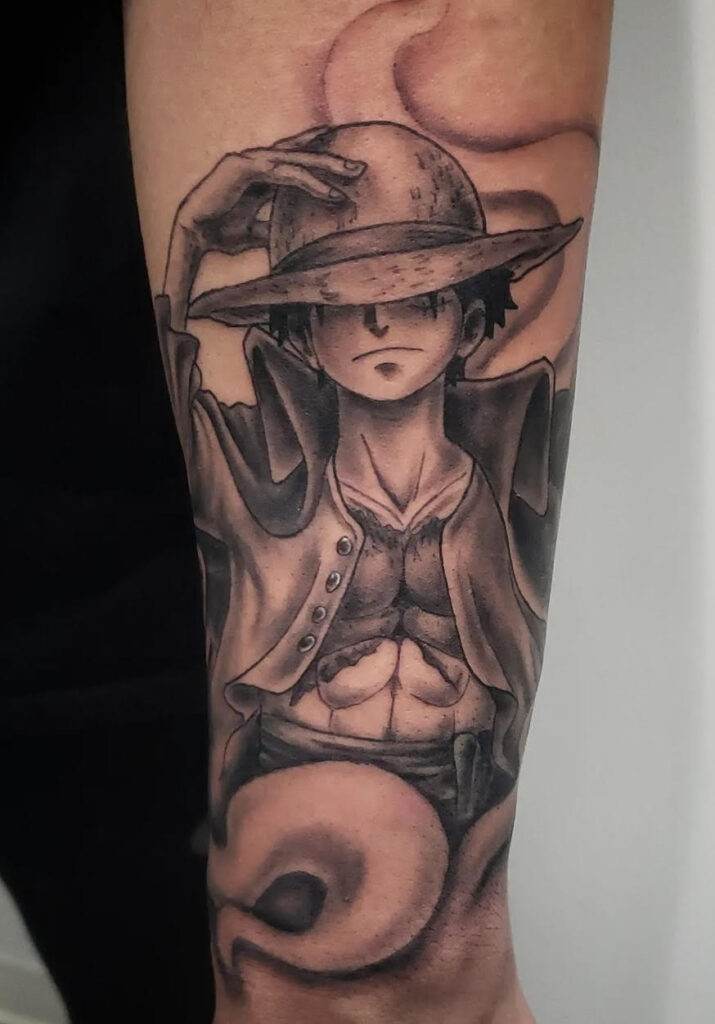
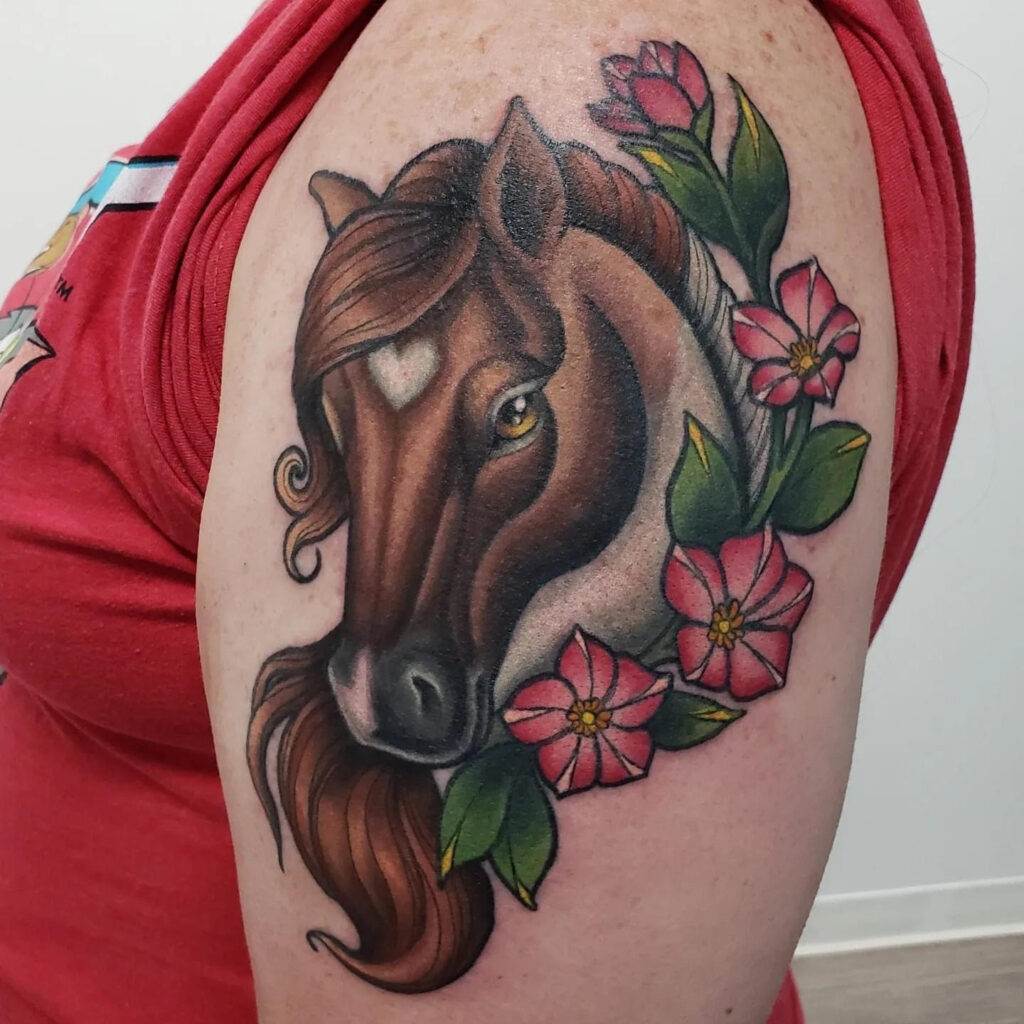
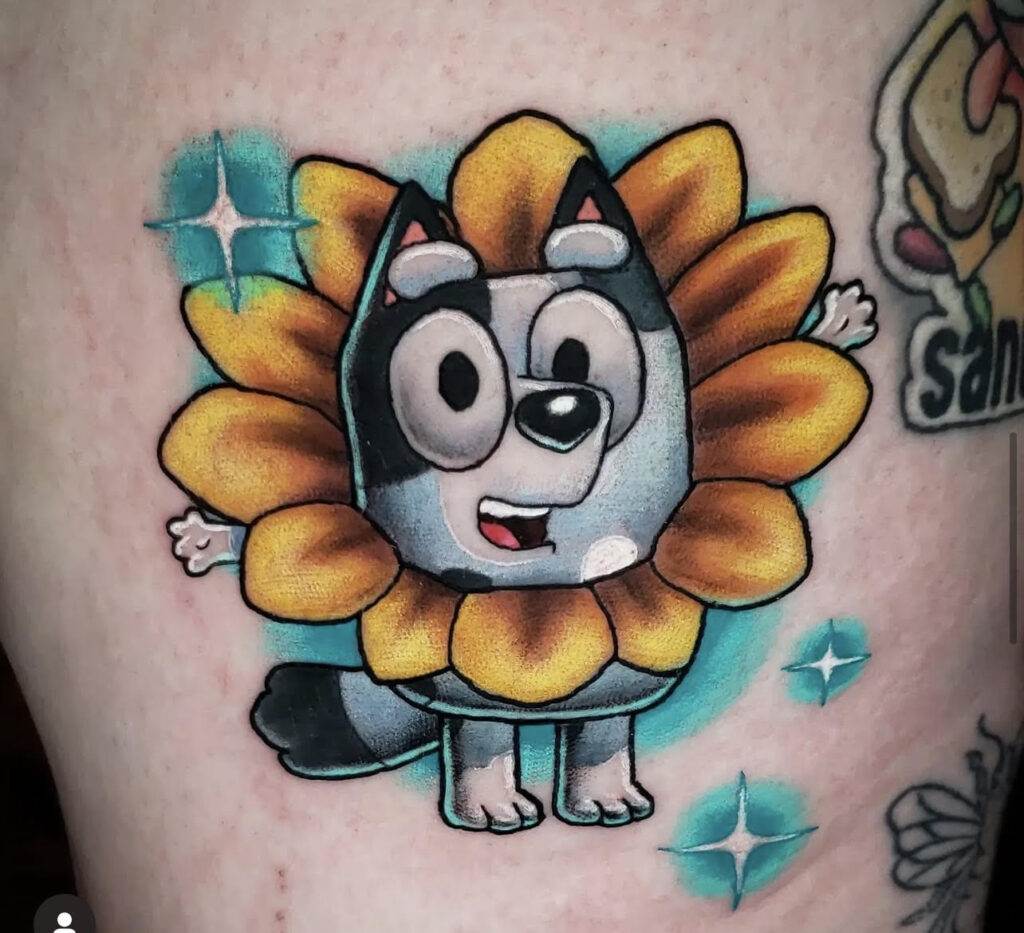
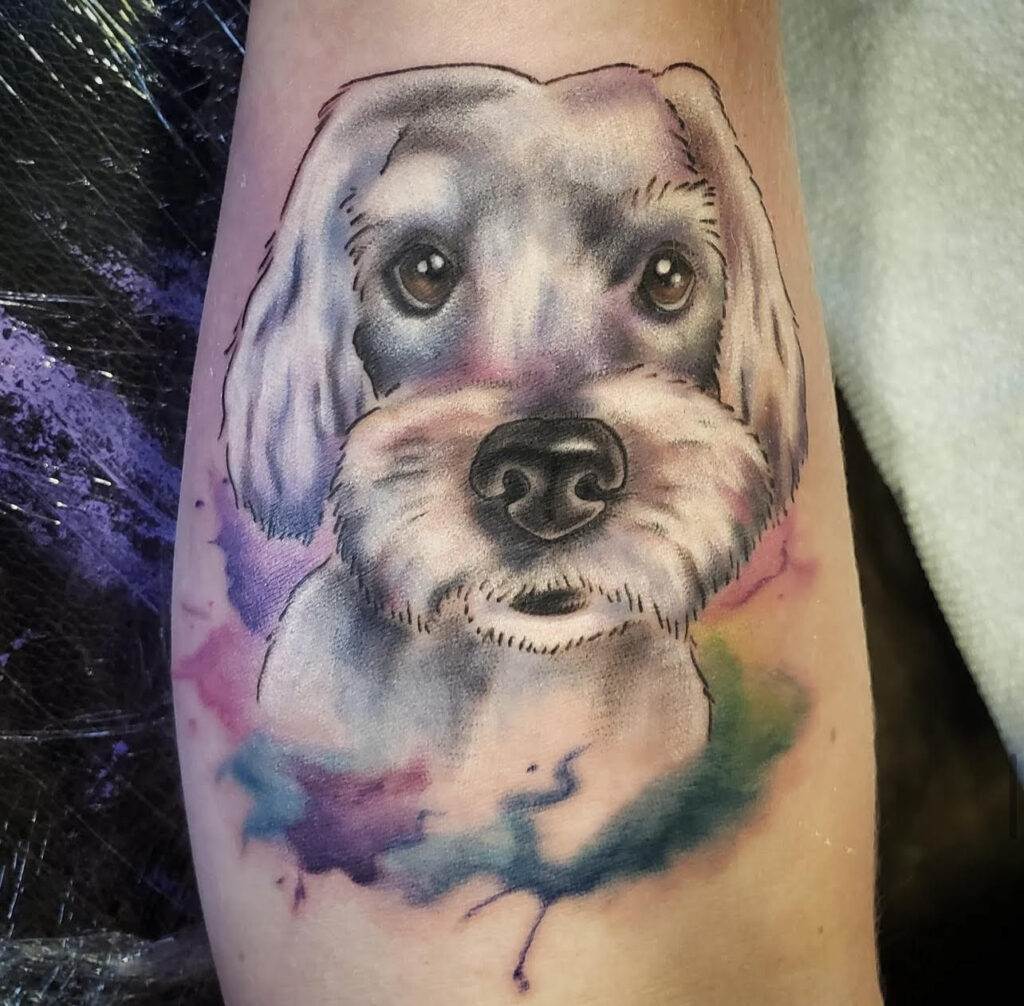
Inspiration and Design Process
Finding Inspiration for Your Custom Tattoo
Embarking on the journey to create a custom tattoo involves finding the right inspiration. This is a crucial step that influences the design, ensuring it resonates with who you are. Inspiration can stem from a variety of sources. Here are some ideas to get those creative juices flowing:
- Nature: Draw inspiration from the natural world around you. Flowers, mountains, or animals can serve as powerful symbols of personal significance.
- Art and Culture: Explore different art forms or cultural motifs that resonate with your background or interests. Tribal patterns, folk art, or classic paintings can spark innovative designs.
- Quotes and Literature: Consider a phrase or quote from a favorite book, song, or poem. Words have a unique way of encapsulating emotions and experiences that often can’t be portrayed through images alone.
- Personal Experiences: Reflect on meaningful life events, such as travel experiences, achievements, or personal growth. Each experience can inspire a design that holds deep significance.
Collaborating with Your Tattoo Artist
Once you have gathered your inspirations, the next step is to collaborate with your tattoo artist. This partnership is vital in bringing your vision to life. Here’s how to approach this collaboration effectively:
- Open Communication: Clearly express your ideas and inspirations to your tattoo artist. Don’t hesitate to share your thoughts, feelings, and personal stories that the tattoo reflects.
- Be Receptive: While it’s crucial to convey your vision, be open to your artist’s input. Tattoo artists are skilled in understanding how designs flow on the body and may suggest modifications to enhance the final appearance.
- Iterate Designs: Collaborate by requesting sketches or mock-ups. This iterative design process allows you to refine your ideas and achieve a design that truly feels right.
Working closely with your tattoo artist can enrich the design experience and ensure that the final result is a meaningful representation of you. The journey from inspiration to collaboration ultimately shapes the personal narrative that your custom tattoo will tell.
Tattoo Aftercare and Maintenance
Importance of Proper Aftercare
After getting your custom tattoo, proper aftercare is essential for ensuring that your artwork heals beautifully and retains its vibrancy. Neglecting aftercare can lead to complications such as infections, fading, or distortion of the design. Here’s why proper aftercare should never be overlooked:
- Promotes Healing: A tattoo is essentially an open wound, and adequate aftercare helps facilitate the natural healing process, minimizing pain and discomfort.
- Prevents Infections: Proper care significantly reduces the risk of bacterial infections, which can lead to complications and reduce the tattoo’s overall quality.
- Enhances Longevity: Great aftercare can preserve the colors and details of your tattoo, ensuring it remains as fresh and striking as the day it was inked.
Tips for Maintaining Your Custom Tattoo
To keep your tattoo looking its best, consider these valuable maintenance tips:
- Follow Your Artist’s Instructions: Your tattoo artist will provide specific aftercare instructions tailored to your tattoo. Adhere to these carefully to achieve optimal results.
- Keep It Clean: Gently wash the tattoo with mild soap and water to remove any blood or excess ink. Pat it dry with a clean towel without rubbing.
- Moisturize Regularly: Apply a thin layer of fragrance-free ointment or tattoo aftercare lotion to keep the skin hydrated. Over-moisturizing, however, can lead to clogged pores, so moderation is key.
- Avoid Sun Exposure: Protect your healing tattoo from direct sunlight, as UV rays can fade colors. Once healed, always apply sunscreen to the area to maintain its vibrancy.
- Stay Hydrated and Healthy: Maintaining good overall health can enhance skin healing. Drink plenty of water and eat a balanced diet.
By prioritizing aftercare and maintenance, individuals can enjoy the beauty of their custom tattoo for years to come, appreciating the artistry every time they look at it. Taking these steps not only preserves the tattoo’s integrity but also deepens one’s connection to their personal story.
Custom Tattoos and Cultural Significance
Custom Tattoos in Different Cultures
Custom tattoos often carry deep cultural significance across the globe, reflecting the diverse histories, beliefs, and practices within various communities. In many cultures, tattoos are not merely decorative but serve as vital markers of identity and heritage. For instance:
- Polynesian Tattoos: In Polynesian culture, tattoos, known as “tatau,” symbolize status, lineage, and personal achievements. These intricate patterns tell stories about the wearer’s history and social position.
- Japanese Irezumi: Japanese tattoos often feature rich symbolism, including koi fish, cherry blossoms, and dragons. Each design has meanings tied to ideas of perseverance, beauty, and strength, often taking years to complete.
- Native American Tattoos: For many Native American tribes, tattoos embody important rituals and signify achievements or spiritual beliefs. They often feature symbols that protect the wearer or represent a connection to nature.
These examples illustrate how custom tattoos can serve as cultural narratives, bridging a personal identity with a broader lineage and history.
Modern Interpretations of Traditional Tattoo Designs
As tattooing has grown in popularity, contemporary artists frequently blend traditional themes with modern sensibilities, creating innovative designs that honor their roots while appealing to today’s aesthetic preferences. This fusion has led to a dynamic evolution in tattoo culture:
- Hybrid Skin Art: Artists now incorporate elements from various cultures, resulting in unique styles that respect traditional meanings while adapting to modern tastes. For example, a traditional koi fish design might be stylized with contemporary colors and geometric patterns.
- Reimagining Symbolism: Many individuals choose to reinterpret traditional designs to imbue them with personal significance. A tribal pattern may be modified to represent a personal journey rather than a cultural ritual.
- Global Influence: The internet has facilitated a global exchange of tattoo styles, allowing artists from different backgrounds to influence one another. This cultural fusion encourages creativity while respecting the established meanings of traditional art.
By understanding the cultural significance behind custom tattoos and embracing modern interpretations, individuals can connect with history while expressing their unique narratives through ink on skin. This exploration creates a rich tapestry that honors the past while celebrating individual expression in the art of tattooing.
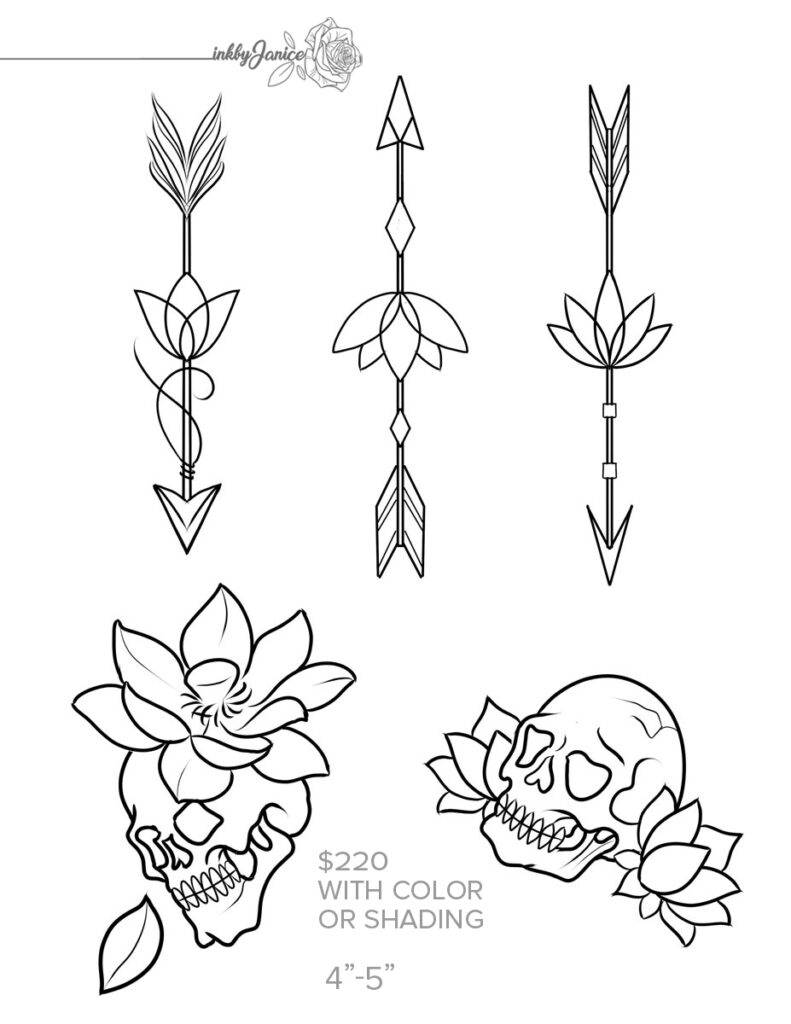
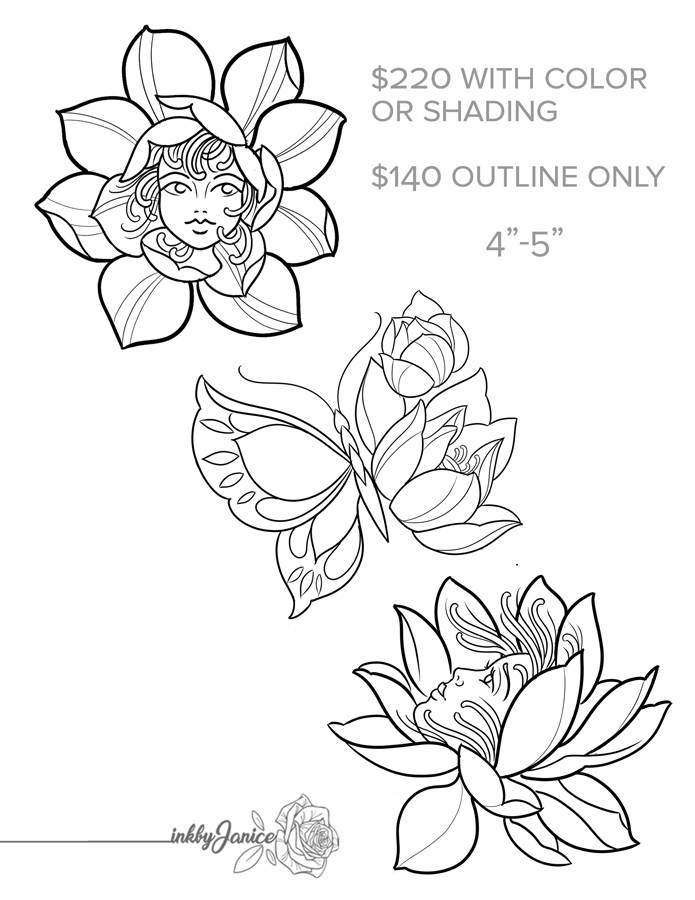
Legal and Ethical Considerations
Copyright Issues with Custom Tattoos
As the popularity of custom tattoos rises, so do concerns regarding copyright and intellectual property rights. The tattoo industry exists in a unique legal gray area where original artwork can often intersect with issues of ownership. Understanding these copyright issues is vital for both tattoo artists and clients alike:
- Originality of Designs: Custom tattoos might be inspired by existing art, but significant changes must be made for the design to be considered original. Artists are encouraged to create unique pieces rather than replicating existing works.
- Ownership of Artwork: A common question is who owns the rights to a tattoo design after it has been inked. Typically, artists retain copyright over their artwork, while clients hold the rights to display the tattoo on their body. However, questions arise if the design is reproduced or showcased commercially.
- Avoiding Trademark Violations: Clients should be mindful of trademarked symbols or logos, as using these in a tattoo design could lead to legal repercussions for both the artist and wearer.
Clear communication and a mutual understanding of rights before the tattooing process can significantly reduce the risk of disputes.
Ensuring Ethical Practices in the Tattoo Industry
Beyond legal concerns, ethical practices within the tattoo industry are equally important. Clients should feel confident that they are being treated fairly and that their tattoo artist operates with integrity. Here are some key considerations:
- Transparency: Tattoo artists should be forthright about their pricing, the materials used, and potential risks associated with the tattooing process. Clients ought to feel comfortable asking questions and receiving clear answers.
- Consent and Communication: Artists must obtain explicit consent from clients, ensuring they fully understand the design process, aftercare requirements, and what to expect on the day of their appointment.
- Cultural Sensitivity: Artists should approach cultural designs with respect and consideration, avoiding appropriation by taking the time to understand the meanings behind symbols and their significance.
By emphasizing ethical practices and legal awareness, both tattoo artists and clients can foster a respectful relationship that honors personal expression while protecting individual rights within the vibrant and diverse tattoo community.

